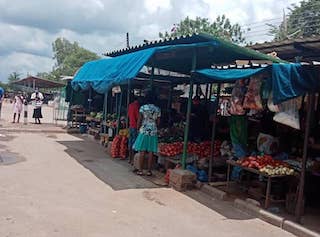Stakeholders in the Informal sector have welcomed the move to formalize the sector, a key contributor to the country’s Gross Domestic Product(GDP).
The formalization of the informal sector is in line with the International Labour Organization (ILO) recommendation R204 of 2015 concerning the transition from the Informal to the formal economy.
Speaking during a meeting held in Bulawayo, Tuesday, by Bulawayo Vendors and Traders Association (BVTA) in partnership with Vendors Initiative for Social and Economic Transformation (VISET) and Zimbabwe Coalition on Debt and Development (ZIMCODD), VISET Executive director Samuel Wadzai said formalizing the informal economy will see inclusive growth in the sector.
“Given the fact that we are currently having formalization strategy that is being carried out by the Ministry of Public and Social Welfare, we wanted also to take this opportunity to be together with different stakeholders and see how we can also feed into the already happening processes,” said Wadzai.
“The major benefit from the formalization of the informal economy is that we are going to see an inclusive growth of the informal economy so that we are no longer regarded as a sector but as a key player in the development of national economy because there will be proper channels of supporting the sector, proper channels of taxing the sector, proper channels of dealing with some of the challenges that the sector is facing,” he said.
Wadzai said they need the process of formalization to be inclusive.
BVTA director Michael Ndiweni added that there is a need to broaden the informal sector as an economy.
“If you look at the 2022 budget it has not shown the contribution of the informal economy. The budget has not recognized the contribution of the informal economy,” said Ndiweni.
He said this makes it difficult to trace how much money has been taken from the informal economy and how much money has been ploughed back.
Meanwhile, Bulawayo City Council (BCC) town planner Shelton Sithole said the local authority has since tried to localize the recommendation by ILO and already have a strategy they are working towards.
“We are in the process of formulating an apex sort of structure that will incorporate all the informal actors in Bulawayo, part of which, we have a strategy that we want to go towards to that is the Bulawayo Economy Enhancement strategy, we have done the first part but what we have noticed is that it has not been conclusive in terms of inclusiveness,” said Sithole.
He said the municipality is also working on identifying other key players in the informal sector in Bulawayo.
“So, what we are doing right now, we are identifying other actors in the informal sector in Bulawayo, then once we bring together these various actors we then say let’s go back to the drawing board, this strategy we don’t want to sectorize it, at the apex we want to call it an economy.”
Sithole added that this year the Municipality signed a memorandum of understanding with various associations in the informal sector.

